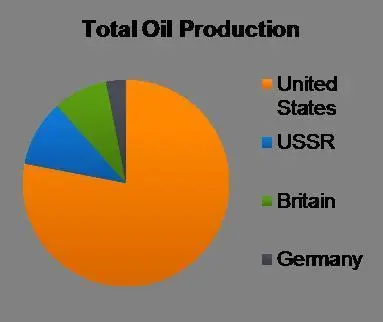1. Introduction
The United States is the largest consumer of oil in the world, yet it does not produce enough to meet its own demand. As a result, the U.S. has become heavily dependent on oil imports from other countries. This dependence has significant implications for the economy, national security, and the environment. In this article, we will explore the reasons why the U.S. imports oil and the impact it has on the country.
2. The significance of oil importing for the United States
The significance of oil importing for the United States cannot be overstated. As the largest consumer of oil globally, the U.S. relies heavily on oil imports to meet its energy needs. This dependency has several implications, both positive and negative.
Firstly, from an economic standpoint, oil importing contributes to the trade deficit. The U.S. spends a significant amount of money on oil imports, which has a direct impact on its balance of payments. Additionally, oil price fluctuations can affect the domestic economy, causing inflation and increasing production costs for businesses.
Secondly, oil importing has national security implications. The U.S. relies on stable oil supplies to power its economy and military operations. Any disruption in the global oil market can have serious consequences for national security.
Lastly, oil importing has environmental implications. As the U.S. imports oil from different parts of the world, the carbon footprint associated with transportation and refining activities increases. This impacts efforts to reduce greenhouse gas emissions and combat climate change.
In conclusion, the significance of oil importing for the U.S. extends beyond meeting energy needs. It impacts the economy, national security, and the environment, making it an issue of utmost importance for the country.
3. Factors influencing the need for oil imports
Factors influencing the need for oil imports can be categorized into two main areas: domestic production capabilities and global market dynamics.
On the domestic front, the U.S. has seen a decline in its oil production over the years. Despite advancements in technologies like fracking, which increased oil production for a while, the country has struggled to match the level of consumption with domestic production. This is partly due to limited access to reserves, environmental concerns, and the high cost of extraction.
Global market dynamics also play a significant role. The U.S. is part of a global oil market where supply and demand are determined by various factors. Conflict in oil-rich regions, political instability, and changes in oil prices can all impact the global supply of oil. Additionally, the U.S. relies on imports of specific types of oil that may not be domestically available, such as heavy crude oil.
Considering these factors, it becomes evident that the need for oil imports is influenced by a complex interplay of domestic production capabilities and global market forces. This highlights the importance for the U.S. to diversify its energy sources, invest in alternative fuels, and focus on reducing dependency on oil imports. In the next section, we will delve deeper into the potential solutions to reduce the need for oil imports and enhance energy security for the country. Stay tuned!
4. Economic implications of oil imports
The need for oil imports in the U.S. has significant economic implications. The country spends billions of dollars each year on importing oil, which affects the balance of trade and overall economic stability. As oil prices fluctuate, so does the cost of importing oil, making it challenging for businesses and consumers to predict and plan for energy expenses.
Furthermore, oil imports create a dependence on foreign nations for a crucial resource. This dependence can leave the U.S. vulnerable to supply disruptions, geopolitical tensions, and pricing manipulations. It also puts the country at a disadvantage in terms of energy security and national sovereignty.
To address these economic challenges, it is essential to explore alternative energy sources and invest in domestic production capabilities. By reducing the reliance on oil imports, the U.S. can enhance its energy independence, protect its economy from oil price shocks, and stimulate job growth within the energy sector.
In the next section, we will look at the potential steps that the U.S. can take to reduce its dependence on oil imports and move towards a more sustainable and secure energy future.
5. The impact on national security
The dependence on oil imports in the U.S. not only affects the economy but also has significant implications for national security. Relying heavily on foreign nations for oil puts the country at risk of potential supply disruptions and geopolitical tensions.
In times of conflict or political instability in oil-producing regions, the U.S. may face difficulties in accessing the oil it needs to ensure national energy security. This vulnerability can weaken the country’s position in global affairs and limit its ability to protect its interests.
Furthermore, the fluctuation of oil prices, influenced by geopolitical events and market manipulations, can significantly impact the U.S. economy and strain its national security efforts. High oil prices can increase the cost of military operations, transportation, and infrastructure, jeopardizing the overall defense budget.
To address these national security concerns, the U.S. must prioritize initiatives that reduce its dependence on oil imports. Investing in renewable energy sources, increasing domestic production, and promoting energy efficiency are crucial steps towards ensuring a more secure and sustainable energy future. By taking proactive measures, the U.S. can enhance its national security capabilities and protect its interests on a global scale.










Hello!! My name is Jeanine
I love to eat, travel, and eat some more! I am married to the man of my dreams and have a beautiful little girl whose smiles can brighten anyone’s day!